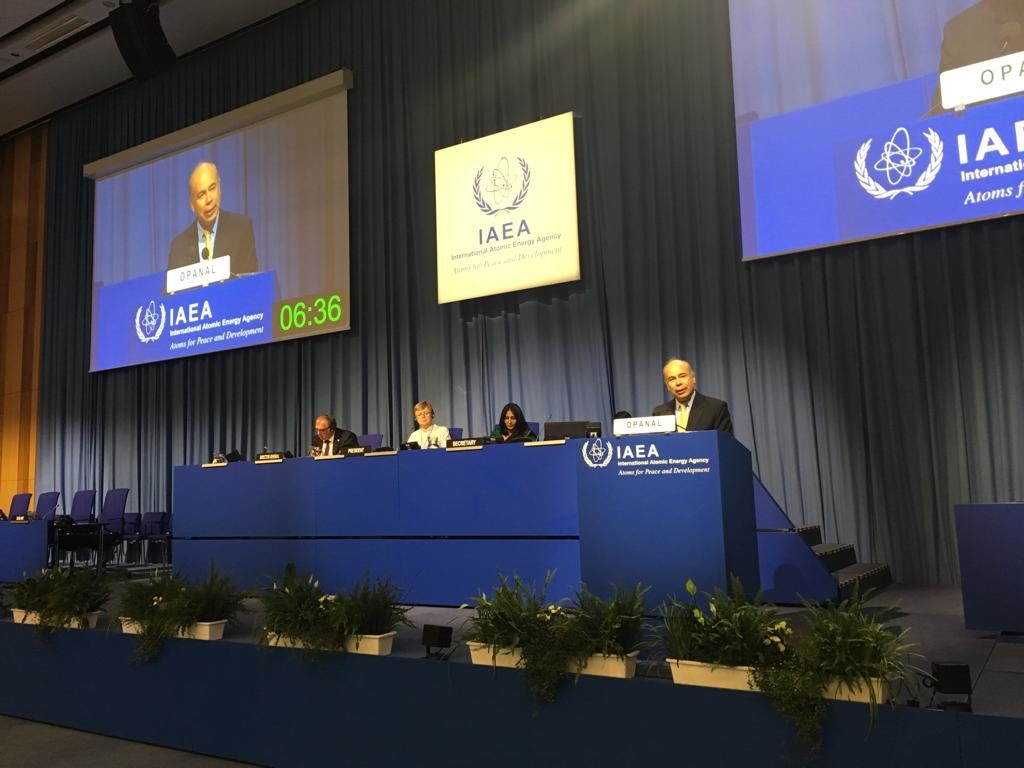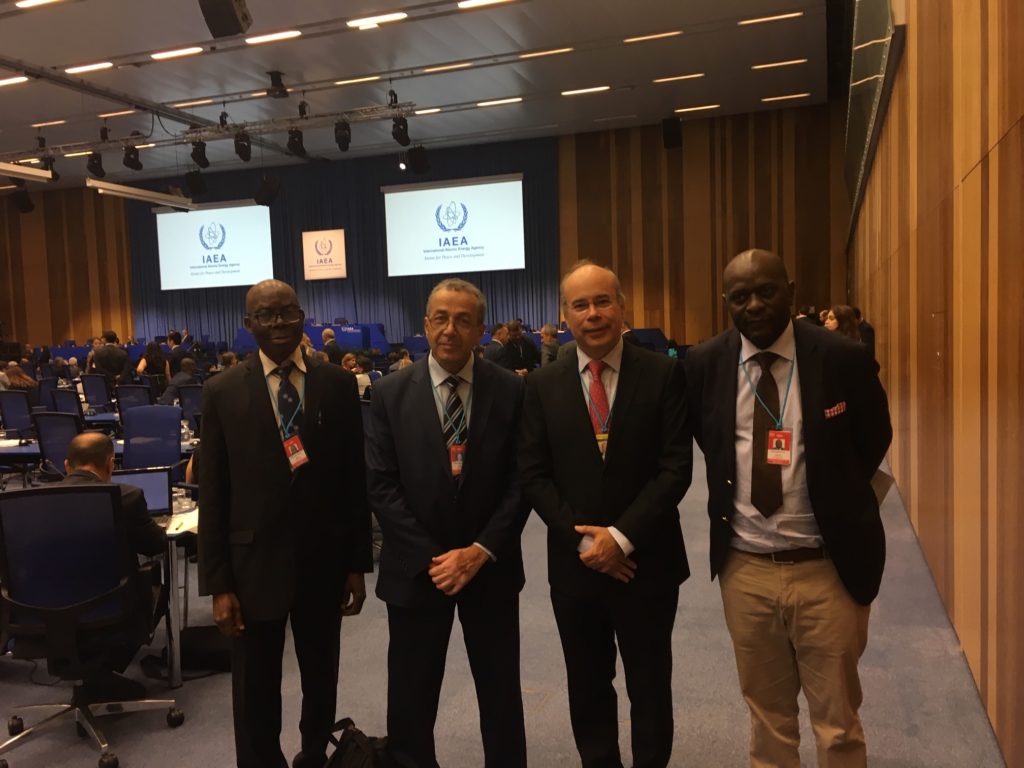
Amb. Eric Anderson Machado (Coordinator of OPANAL in Vienna and Permanent Representative of Peru to the IAEA) delivers the OPANAL statement, on behalf of the Secretary-General, at the 62nd session of the IAEA General Conference.
On 21 September 2018, Ambassador Eric Anderson Machado (Permanent Representative of Peru to the International Organizations based in Vienna), in his capacity as Coordinator of OPANAL in Vienna, delivered the statement by the Agency on behalf of the Secretary-General of OPANAL at the general debate of the 62nd Session of the General Conference of the International Atomic Energy Agency (IAEA).
In the statement he delivered, Ambassador Anderson Machado said:
The Treaty of Tlatelolco represents an innovation in International Law that inspired four other regions to follow that path. Nuclear-weapon-free zones are today one of the key elements in the multilateral treatment of questions related to peaceful uses of nuclear energy, non-proliferation and disarmament of nuclear weapons. It is always important to stress the legal nature and the political reality of the Nuclear-weapon-free zones, which today involve 116 countries. Among the five treaties establishing the Zones, the Treaty of Tlatelolco is the only one that maintains in operation an international organization: the Agency for the Prohibition of Nuclear Weapons in Latin America and the Caribbean (OPANAL).
The IAEA and OPANAL maintain a close relationship in accordance with the Treaty for the Prohibition of Nuclear Weapons in Latin America and the Caribbean (Treaty of Tlatelolco). The Treaty attributes to the IAEA an important role as stated in its articles 13 to 18, defining the Control System established in order to ensure the appropriate application of the Treaty.
To ensure that nuclear energy is exclusively used for peaceful purposes by the Latin American and Caribbean States, the Treaty of Tlatelolco establishes the obligation of all the Parties to negotiate nuclear safeguards agreements with the IAEA.
The specific role of OPANAL and the IAEA, as well as the coordination and cooperation between both organizations, is essential for the proper operation of the Nuclear-Weapon-Free Zone in Latin America and the Caribbean. That is why, in October 1972, OPANAL and the IAEA signed a cooperation agreement, in accordance with article 19 of the Treaty of Tlatelolco.
Every year, OPANAL is invited to participate in the General Conference of the IAEA. For its part, the IAEA also participates in the General Conferences of OPANAL. On 5 February 2016, the Director General of the IAEA, Mr. Yukiya Amano, visited the headquarters of OPANAL where he had a meeting with Representatives of the Council of the Agency and with Amb. Luiz Filipe de Macedo Soares, Secretary-General of OPANAL.
Watch the video of the statement by OPANAL, delivered by Amb. Eric Anderson Machado.
Meeting between OPANAL and AFCONE

From left to right: Mr. L.A. Dim (Nigerian Nuclear Regulatory Authority); Mr. Messaoud Baalioumer (Executive Secretary of the African Commission on Nuclear Energy - AFCONE); Amb. Eric Anderson Machado (Coordinator of OPANAL in Vienna and Permanent Representative of Peru to the International Atomic Energy Agency - IAEA); and Mr. Colin Obrien Namalambo (AFCONE Commissioner from Namibia).
On the margins of the 62nd Session of the General Conference of the IAEA, Ambassador Eric Anderson Machado held a meeting with the Executive Secretary of the African Commission on Nuclear Energy (AFCONE), Mr. Messaoud Baaliouamer. AFCONE is an international organization created by the Treaty on the African Nuclear-Weapon-Free Zone in order to ensure compliance with the obligations of that Treaty. The purpose of the meeting between OPANAL and AFCONE was to establish a direct contact between both organizations, the two sole organizations among the five existing treaties establishing nuclear-weapon-free zones.